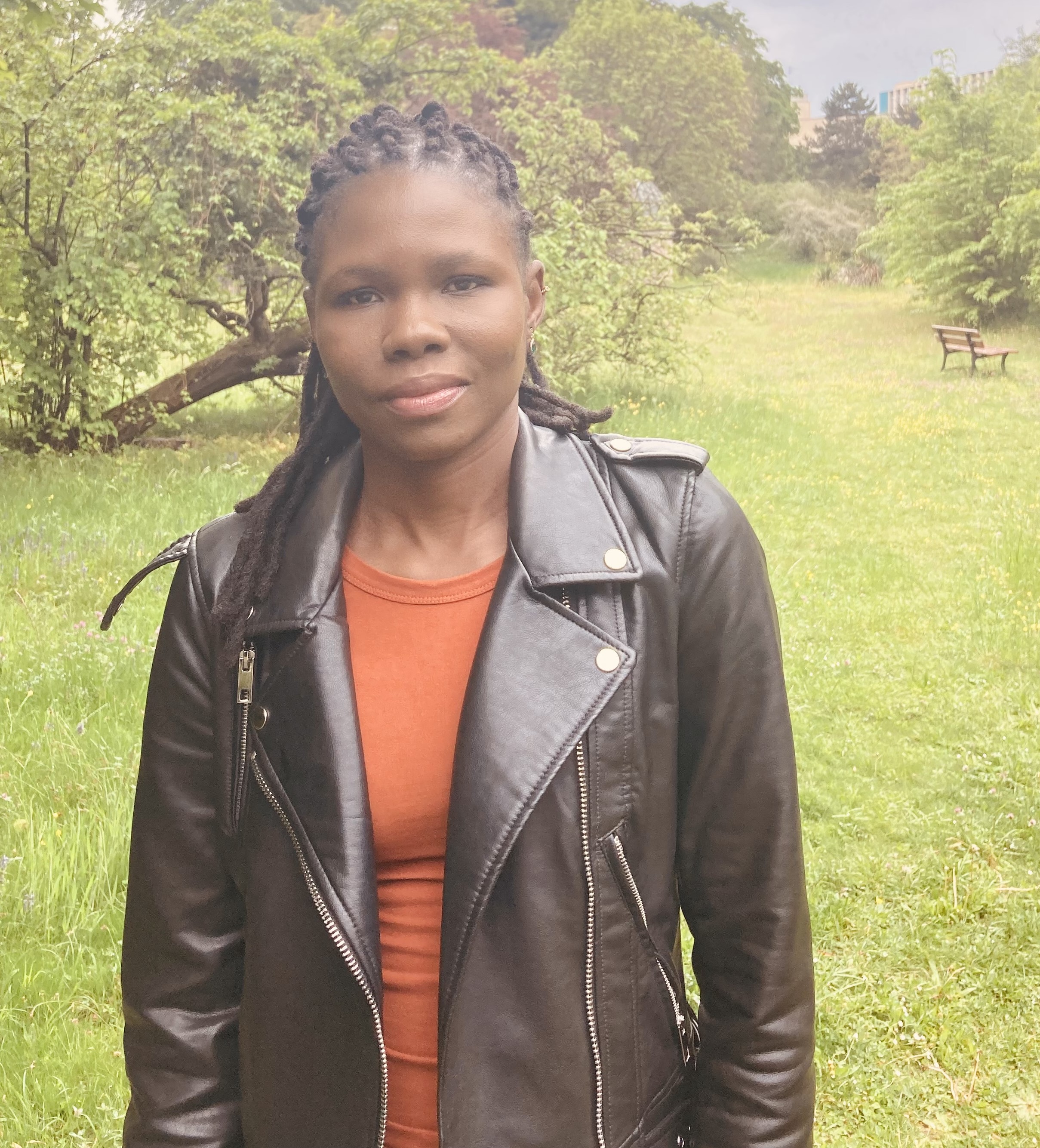Dr Marie Korsaga, who are you?
My name is Dr Marie Korsaga, I am originally from Burkina Faso where I carried my undergraduate studies at the Université Joseph Ki-Zerbo and obtained a Master’s degree in Physics in 2013. My MSc research was about the photometric study of brown dwarfs in the optical
Quel a été votre parcours ?
After my Master, I worked at the Laboratoire d’Astrophysique de Marseille (LAM) in France as an intern where I studied the kinematics of galaxies using Fabry-Perot observations, before pursuing a PhD in LAM jointly with the University of Cape Town in South Africa. My PhD research focused on investigating the distribution of baryonic and dark matter in nearby galaxies. Using state-of-the-art multi-wavelength spectral and photometric data – including infrared, optical and HI observations, we discovered that the relations between Dark Matter halo parameters and galaxy luminosities are not standard as previously thought, but are function of the galaxy morphological type.
After completing my PhD in 2019, I joined the IAU Office of Astronomy for Development (OAD) for a fellowship in 2020, during which I researched the scientific community's contribution to the fight against the COVID-19 pandemic. I published several blog articles on this topic, which can be found on the official IAU-OAD website. I also worked as a postdoctoral researcher at the IAA-CSIC in 2020. I am currently a postdoctoral researcher at the Observatoire astronomique de l'Université de Strasbourg (ObAS) and a lecturer at the Université Joseph Ki-Zerbo (UJKZ) in Burkina Faso.
Can you tell us a bit more about your research?
My research focuses on the distribution of dark matter and visible matter in galaxies. Put simply, visible matter - ordinary matter made up of protons, neutrons, electrons and everything else that can be observed with our instruments - makes up only about 5% of the Universe; the rest is invisible matter, which breaks down as follows 26% dark matter and 68% dark energy. Dark matter, with its gravitational force, is used to explain why galaxies stay close together, while dark energy causes the Universe to 'expand' faster over time. So we can't talk about understanding the Universe when we only know 5% of its components. So to understand our Universe, in other words to explain its formation and evolution, it is essential to understand what dark matter and dark energy are.
Dark matter, as its name suggests, is something that we cannot see, even with the most sophisticated telescopes. No dark matter particle has yet been detected, but we feel its presence through its effect on gravity. The aim of my research is to study how dark matter is distributed in galaxies in order to better understand the formation and evolution of galaxies and the Universe in general.
In addition to your research, there is a cause that you are particularly passionate about. Could you tell us about it?
In addition to my academic activities, I am involved in a number of projects to promote women in STEM, with the aim of contributing to more equitable gender representation in science, particularly in developing countries. In recognition of my research and advocacy work, I received the inaugural 2021 African Network for Women in Astronomy Early Career Award. For me, this award is a reminder and motivation to strive to excel not only in my field of research, but also in the actions I take to contribute to the advancement of science, and astronomy in particular.
As the first woman to hold a PhD in astronomy in the whole of West Africa, I feel that part of my duty is to help break down the social barrier surrounding the issue of women in science. To this end, I am involved in many scientific projects, I have given several public lectures on astronomy, I have visited several schools to speak to young girls, I have participated in several documentaries and interviews that highlight and promote women in science.
My message to young girls is to believe in yourself, work hard to achieve your goals and never doubt your abilities.
Do you have other projects?
Yes, I'd like to build planetariums in the regions of Burkina Faso to give presentations to the general public, satisfy children's curiosity about the universe and stimulate interest in science and technology. I would also like to install a research telescope that will enable the development of astrophysical research in Burkina Faso, facilitate the training of students, forge links with researchers in other countries and help the country and Africa move forward in the field of astrophysics.
I would also like to work towards the creation of science schools in Africa specifically for women. This would encourage girls to study science and contribute to the development of the continent.


